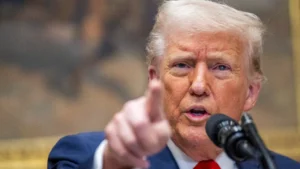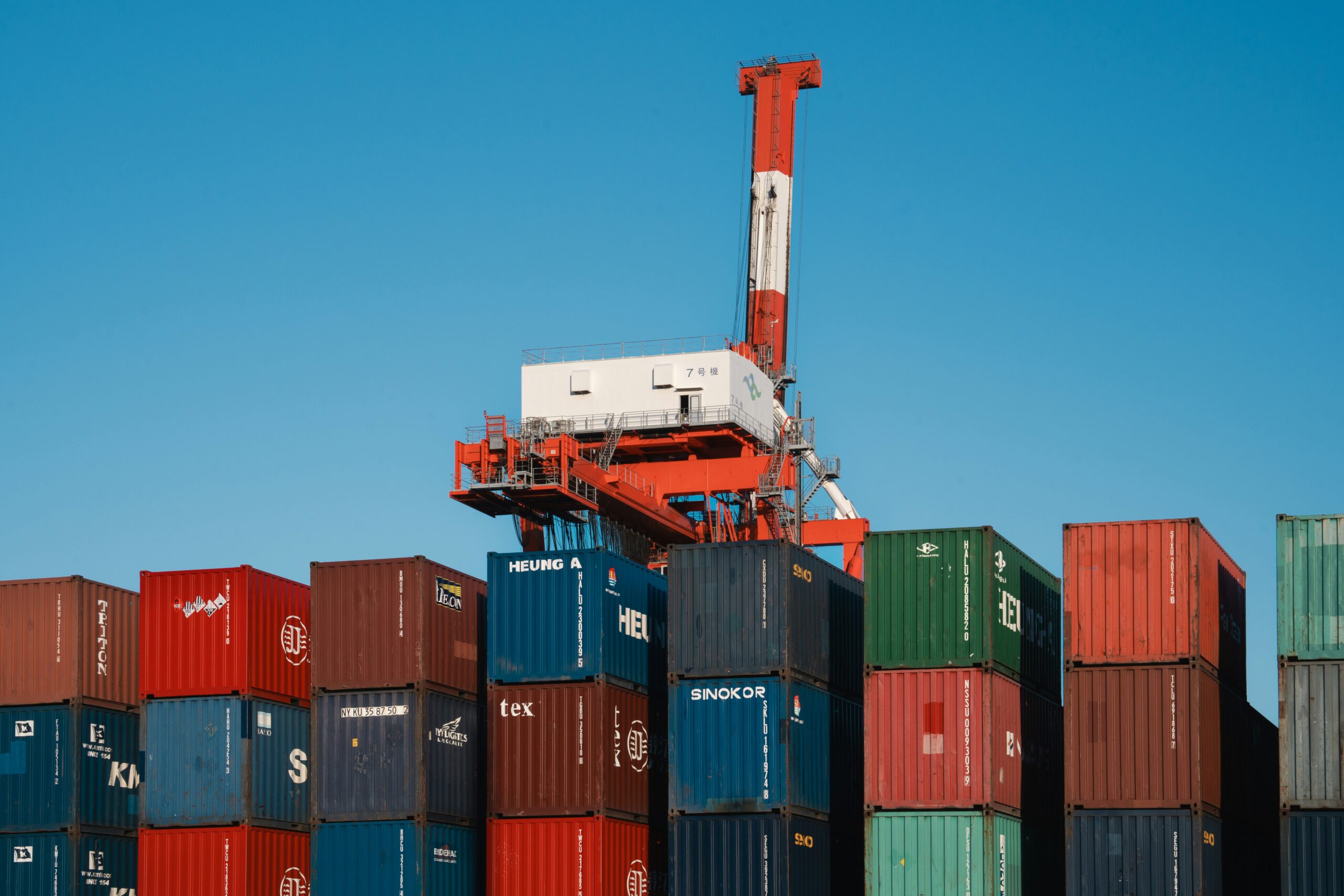 A federal court has ruled that President Donald Trump exceeded his legal authority by imposing tariffs on dozens of countries, citing broad claims of national emergencies. The U.S. Court of International Trade’s unanimous decision strikes down Trump’s tariffs, which were a key part of his economic agenda. Oregon’s Attorney General Dan Rayfield, along with 11 other state attorneys general, challenged the tariffs, arguing that the Constitution does not grant the president unchecked authority to disrupt the economy. The ruling means that the government may have to refund duties already collected, and the Justice Department has filed an appeal, potentially leading to further legal battles.
A federal court has ruled that President Donald Trump exceeded his legal authority by imposing tariffs on dozens of countries, citing broad claims of national emergencies. The U.S. Court of International Trade’s unanimous decision strikes down Trump’s tariffs, which were a key part of his economic agenda. Oregon’s Attorney General Dan Rayfield, along with 11 other state attorneys general, challenged the tariffs, arguing that the Constitution does not grant the president unchecked authority to disrupt the economy. The ruling means that the government may have to refund duties already collected, and the Justice Department has filed an appeal, potentially leading to further legal battles.
 Trump justified the tariffs based on national emergencies related to fentanyl trafficking and trade deficits, imposing retaliatory tariffs on countries that responded in kind. However, the court found that the International Emergency Economic Powers Act of 1977 does not authorize the president to impose unbounded tariffs. The ruling nullified Trump’s executive orders imposing duties on Canadian, Mexican, and Chinese products, as well as paused “reciprocal” tariffs on 60 trading partners. Deputy Assistant Attorney General Brett Shumate argued that barring Trump from collecting the tariffs would disrupt ongoing foreign trade negotiations.
Trump justified the tariffs based on national emergencies related to fentanyl trafficking and trade deficits, imposing retaliatory tariffs on countries that responded in kind. However, the court found that the International Emergency Economic Powers Act of 1977 does not authorize the president to impose unbounded tariffs. The ruling nullified Trump’s executive orders imposing duties on Canadian, Mexican, and Chinese products, as well as paused “reciprocal” tariffs on 60 trading partners. Deputy Assistant Attorney General Brett Shumate argued that barring Trump from collecting the tariffs would disrupt ongoing foreign trade negotiations.
The court’s decision is the latest legal setback for Trump, who has faced challenges to other key policy initiatives. The ruling covers cases brought by small businesses and Democrat-led states, reinforcing calls for Congress to reassert its constitutional authority over trade deals. While Trump could attempt to impose similar tariffs under other laws, legal experts are skeptical about the feasibility of replicating such sweeping measures. The ruling does not affect other tariffs imposed under Section 232 of the Trade Expansion Act of 1962, which allows the president to levy duties on national security grounds.

The ruling has significant implications for international trade and the global economy. By striking down the tariffs, the court has sent a clear message that the executive branch cannot unilaterally impose broad economic measures without proper legislative backing. This decision may encourage other countries to challenge similar tariffs in the future, potentially leading to a more balanced and regulated global trade environment. Additionally, businesses that were adversely affected by the tariffs may seek compensation, leading to further legal and financial repercussions for the U.S. government.
Moreover, the ruling highlights the ongoing tension between the executive and legislative branches over trade policy. While the president has considerable authority to negotiate and enforce trade agreements, this decision underscores the necessity of congressional oversight and approval. Lawmakers may now feel emboldened to reclaim some of their constitutional powers over trade, leading to potential legislative reforms. This could result in a more collaborative approach to trade policy, ensuring that such significant economic decisions are made with broader consensus and consideration of their long-term impacts.
Read the full story here: Federal court strikes down Trump’s tariffs on countries around the world – POLITICO


